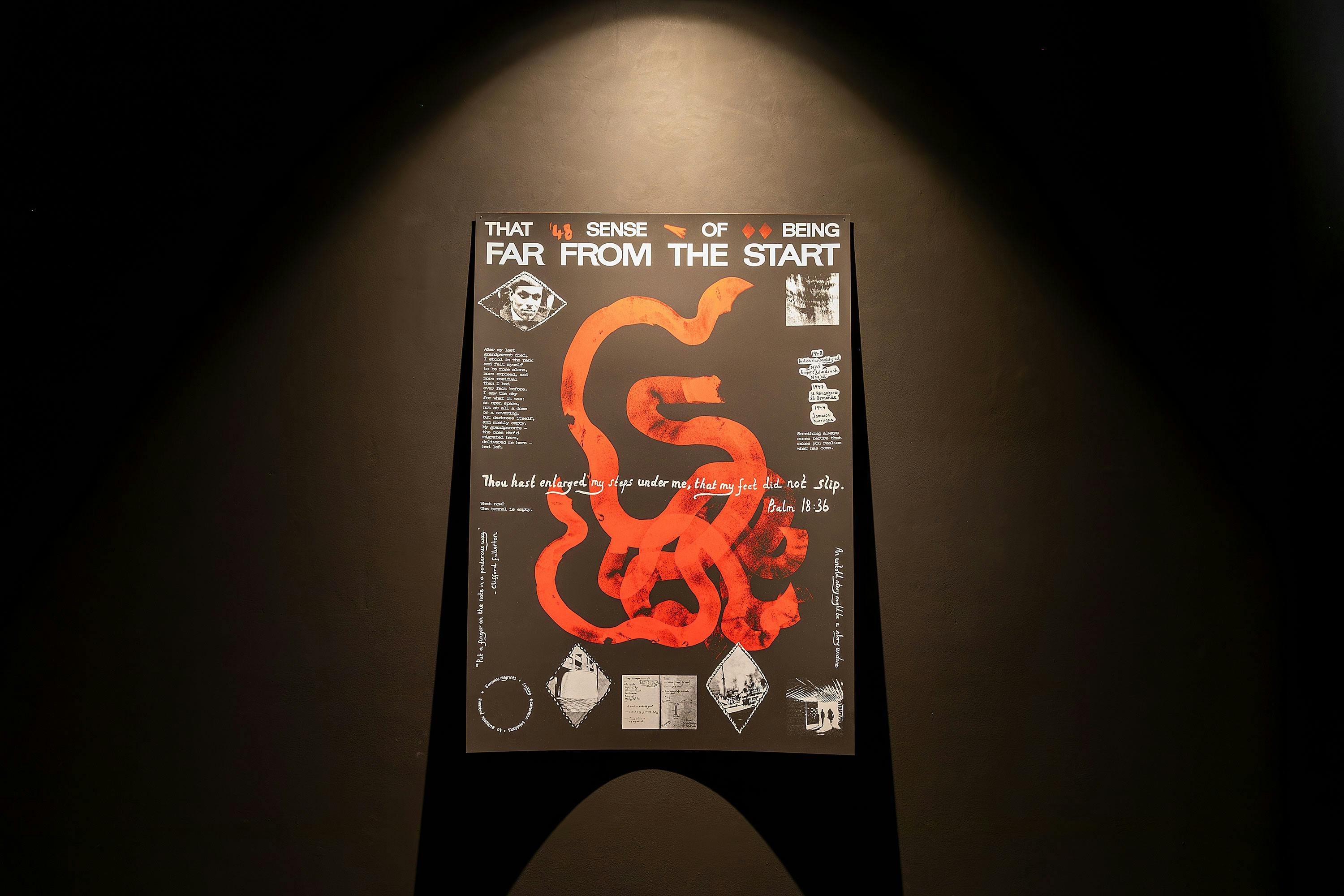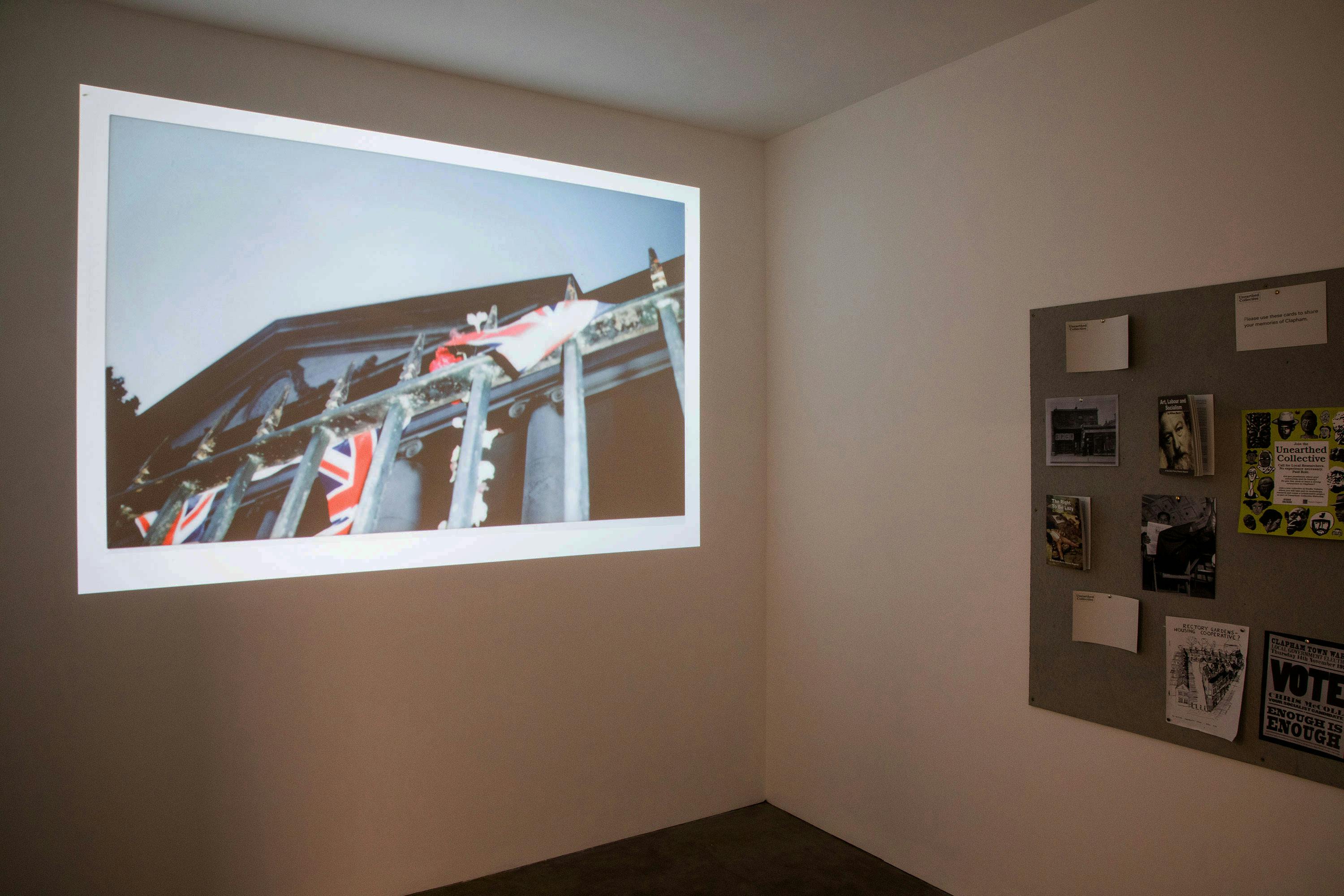Unearthed: Collective Histories was a twelve-month pilot programme of commissions, workshops and events that uncovered the overlooked 20th-century histories of Studio Voltaire’s locality.
Partnering with several Lambeth-based archives, local schools, community groups, residents and artists, the programme investigated two local landmarks linked by a shared history of WWII bomb damage: Rectory Gardens and Clapham South Shelter. Unearthed: Collective Histories led to the creation of a resident-led research group, Unearthed Collective, a new learning programme, and a public programme of exhibitions and events as part of the Lambeth Heritage Festival.
Rectory Gardens was a squat-turned-housing cooperative in Clapham Old Town, less than a mile from Studio Voltaire. The street was severely damaged by bombing during WWII. In the late 1960s, squatters moved into the street and slowly renovated the houses. From the 1970s until the eviction in 2014, the street hosted an industrious community of artists, musicians, poets and unconventional ‘free thinkers’.
Spectacle Media, a Battersea-based community interest company specialising in documentary, community-led investigative journalism and participatory media led a research project exploring Rectory Gardens. They hosted a series of free online participatory film editing and oral history workshops using their archival recordings with participants during the final months of their squat-turned-housing cooperative, the eviction and beyond.
In 2023, award-winning artist Jay Bernard led a project that explored the history of Clapham South Shelter, working with Black Cultural Archives. In June 1948, the disused Clapham South Bomb Shelter housed 236 Caribbean people who had recently arrived on the MV Empire Windrush due to a lack of temporary housing following WWII. Conditions were basic, cramped and noisy in the windowless bunker, fifteen storeys underground. Bernard hosted a printmaking workshop for artists who place text, writing and language at the core of their practice. The project culminated in Far from the Start, a new exhibition by Bernard at Studio Voltaire from 31 January 2024–7 April 2024.
South London-based F.A.T. Studio was commissioned to design the artwork, posters and materials related to the project. Their designs were inspired by fonts on Clapham South Shelter tickets and the L shape of Rectory Gardens, combining archival images with illustrations of modern-day Clapham residents.



